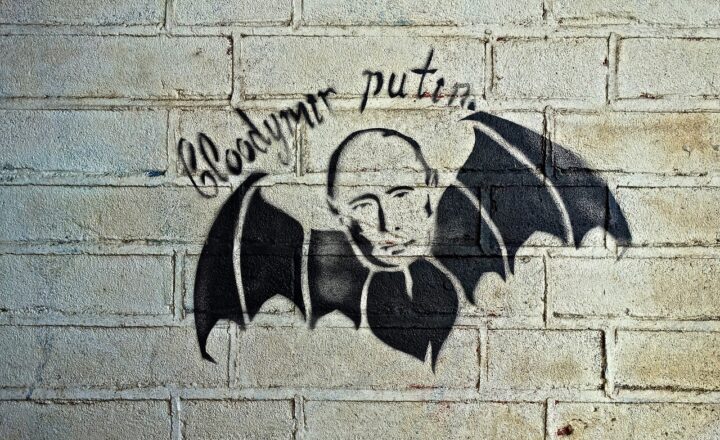The Politics of Influence: Analyzing Social Media’s Impact on Society
November 18, 2024

In the past two decades, social media has revolutionized communication, allowing individuals and organizations to connect worldwide. It’s not just a platform for social interaction; it has become a powerful tool for shaping public opinion, influencing political decisions, and contributing to societal movements. Understanding the politics of influence in this digital era is crucial, as social media platforms can manipulate perceptions and sway the masses in ways that traditional media simply cannot achieve.
1. The Power of Social Media in Modern Politics
Social media has reshaped the landscape of political campaigning and public discourse. Politicians now use platforms like Twitter, Facebook, and Instagram not just to reach voters, but to mobilize them, create narratives, and disseminate information rapidly. Here are some of the critical ways social media influences politics:
- Real-time Communication: Politicians can communicate with the electorate directly and instantly, providing updates, responding to crises, and addressing public concerns without the filter of traditional media.
- Viral Campaigns: Creative campaigns can go viral, enhancing a candidate’s visibility and approachability. A single tweet, meme, or video can change the momentum of a political race overnight.
- Micro-targeting: Using data analytics, campaigns can tailor their messages to specific demographics, which allows for more efficient and targeted outreach strategies. This can lead to increased voter engagement, but also raises ethical concerns regarding privacy and manipulation.
As we analyze the politics of influence, it’s essential to consider both the positive impacts, like increased political engagement, and potential negative consequences, such as misinformation campaigns.
2. Social Media and Public Opinion
Public opinion is shaped and influenced profoundly by social media. The instant accessibility of information can lead to informed and engaged citizens but can also result in polarization and the spread of false narratives. Here’s how:
- Echo Chambers: Social media algorithms often promote content that aligns with users’ existing beliefs, creating echo chambers. This can enhance polarization as individuals are exposed primarily to information that supports their viewpoints while dismissing opposing views as misinformation or propaganda.
- Misinformation and Fake News: The rapid spread of false information is one of social media’s greatest downsides. During elections, misinformation campaigns can mislead voters, as seen in the 2016 U.S. Presidential Election and various political events worldwide. Fake news can sway public opinion significantly, often without accountability.
- Grassroots Movements: Social media platforms have given rise to grassroots movements, such as #MeToo and Black Lives Matter. These movements mobilize individuals around social issues, allowing for collective action that can lead to real political change and raise awareness around critical societal topics.
Understanding how social media shapes public opinion is vital, particularly in a political climate where information is weaponized.
3. The Role of Influencers in Politics
The rise of social media influencers has introduced a new dynamic in political spaces. Influencers often have large, dedicated followings, which can make their endorsements or criticisms highly impactful. Here are some significant aspects to consider:
- Authenticity and Relatability: Influencers often present themselves as more relatable than traditional politicians, which can humanize complex political issues. Their ability to connect emotionally with audiences can sway public sentiment in ways that traditional political figures cannot.
- Mobilization of Youth Voters: Influencers play a crucial role in mobilizing young voters, who are typically less engaged in traditional forms of political campaigning. This demographic shift can significantly influence elections and policy discussions, as seen in the recent U.S. elections.
- Potential for Manipulation: The relationship between influencers and political campaigns can also be murky. Influencers may be paid to promote specific narratives, leading to questions about authenticity, accountability, and the ethics of advertising in political contexts.
The intersection of social media influence and political advertising is reshaping how campaigns connect with constituents, leading to more personal communication but also more complex ethical dilemmas.
4. The Global Impact of Social Media Policies
The global nature of social media means that its impact is not confined within borders. Different countries have different policies regarding social media, which can significantly influence how these platforms operate and affect local politics:
- Censorship vs. Free Speech: Many governments attempt to regulate social media to control information flow, raising debates about censorship and the impact on free speech. Striking a balance between preventing harmful content and upholding freedom of expression is a constant struggle in many democracies.
- Election Interference: Countries have witnessed foreign entities attempting to influence elections through social media manipulation. The allegations of Russian interference in the 2016 U.S. election highlight the vulnerabilities present in our digital communications.
- Digital Activism Globally: Social media has emerged as a powerful tool for activism worldwide, enabling citizens to organize protests and spread awareness about issues like climate change, human rights, and government corruption, often leading to significant political change within oppressive regimes.
In understanding social media’s politics of influence globally, one sees the intertwined nature of technology, policy, and social change.
5. The Future of Social Media’s Role in Society
As we look towards the future, the role of social media in politics and society is likely to evolve further. Here are some potential developments to watch:
- Increased Regulation: Governments are likely to impose more regulations on social media to curb misinformation and protect users, leading to an ongoing debate about the right balance between regulation and freedom of expression.
- Enhanced Transparency: There is growing demand for transparency regarding how user data is handled and how content is moderated. Companies might need to provide more clarity around algorithm usage to regain users’ trust.
- Emergence of New Platforms: As public sentiment shifts, new platforms may emerge as alternatives to existing social media giants, potentially disrupting the current political communication landscape even further.
The future of social media carries both promise and peril, compelling us to remain vigilant about its influence on politics and society.
Conclusion
In conclusion, social media plays a vital role in modern politics and societal influence, offering unique opportunities for engagement while simultaneously presenting significant challenges. Understanding the politics of influence is key to navigating this complex landscape, as it shapes everything from individual voting behavior to global movements for change. As we move forward, we must critically assess our relationship with social media and advocate for ethical practices that prioritize information integrity, authenticity, and user empowerment in the digital space.








